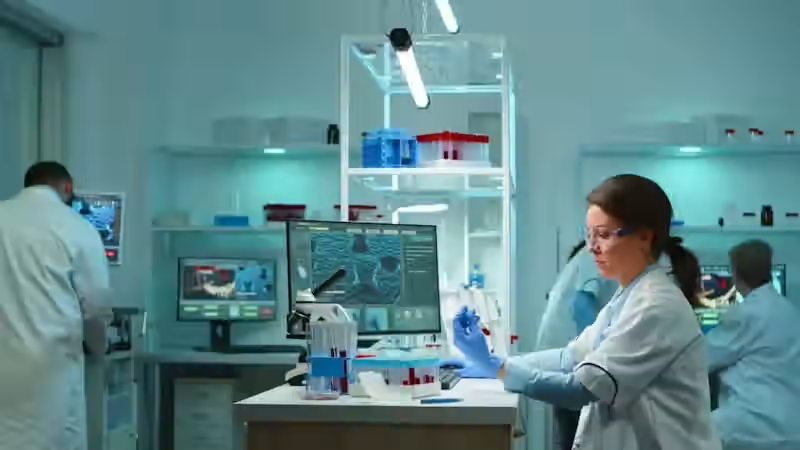Are you passionate about making a difference in healthcare through diagnostic testing and analysis? As a Laboratory Technician, you play a crucial role in detecting diseases, monitoring treatment progress, and ensuring the accuracy of medical diagnoses. Dive into the world of laboratory science and explore how you can contribute to the advancement of healthcare.
Uncover Discoveries: The Role of a Laboratory Technician
Laboratory Technicians perform a wide range of tasks to support medical diagnoses and research efforts. Your responsibilities include:
- Conducting routine medical laboratory tests on body fluids, such as blood or urine, to detect abnormalities or diseases.
- Analyzing test results using microscope or automated analyzers and entering findings into computer systems.
- Ensuring compliance with laboratory protocols and standards to maintain accuracy and reliability of test results.
- Receiving, labeling, and analyzing samples, such as blood, tissue, or toxic substances, according to standard procedures.
- Operating and maintaining laboratory equipment, ensuring proper calibration and functionality.
- Conducting experiments under defined conditions to verify or reject hypotheses using scientific methods.
Qualifications
To pursue a career as a Laboratory Technician, you need:
- A Bachelor’s degree in Chemistry, Pharmacy, Medical Technology, Radiology Technology, Nursing, or a related medical field.
- Necessary licenses or certifications such as Registered Medical Technologist (RMT), Registered Pharmacist (RPh), Registered Chemist (RCh), or Registered Medical Laboratory Technician (RMLT).
Essential Competencies
Success as a Laboratory Technician requires a combination of technical skills and attributes, including:
- Technical Proficiency: Mastery of laboratory techniques, equipment operation, and data analysis methods.
- Attention to Detail: Precision and accuracy in sample handling, testing procedures, and result interpretation.
- Ethical Standards: Adherence to medical practices, safety protocols, and ethical guidelines in laboratory operations.
- Communication Skills: Clear and concise reporting of test results, documentation, and collaboration with healthcare professionals.
- Organizational Abilities: Effective time management, prioritization of tasks, and maintenance of laboratory records.
Investment in Education and Training
Invest in your education by pursuing a Bachelor’s degree in Chemistry or a related field, with tuition fees ranging from Php 50,000 to Php 60,000 per semester in private colleges and universities. Public institutions offer courses free of tuition, providing accessible education opportunities for aspiring Laboratory Technicians.
Lucrative Employment Prospects
Laboratory Technicians enjoy competitive monthly salaries ranging from Php 15,000 to Php 24,000. Explore employment opportunities in various industries, including agribusiness, construction, manufacturing, and mining, where your expertise in laboratory science is valued.
Pathways to Career Advancement
Advance your career by gaining experience and specialization in specific areas of laboratory science, such as immunology, histotechnology, or clinical chemistry. Pursue further education or certifications to qualify for technologist positions and expand your career opportunities in healthcare and research.
Empower Healthcare through Laboratory Science!
As a Laboratory Technician, you contribute to the foundation of healthcare by providing critical insights and diagnostic support. Your dedication to precision, accuracy, and ethical practice ensures the quality and reliability of medical testing, ultimately improving patient outcomes and advancing medical knowledge. Start your journey in laboratory science today and unlock the potential to make a difference in health and wellness.











